Creating a Community Space That Is Drug and Alcohol-Free, Embracing, and Healing
● Preserve a 24-hour drug and alcohol free environment
● Establish a culture of safety for everyone in the community, especially the traditionally
marginalized
● Maintain a physical space that conveys beauty, dignity, and respect
● Employ an inclusive definition of recovery that is person-centered and broadly embraces
both chemical dependency and mental health challenges
● Create a culture of reconciliation and healthy leave-taking that honors good-byes
o Maintain an open door policy that actively engages in a plan for repair
o Acknowledge the tensions that arise between the needs of the individual and the
community as a whole, and commit to addressing these conflicts with balanced
compassion
o Honestly acknowledge when an individual’s needs will be best met elsewhere
Nurturing Structures of Loving Accountability Called Recovery Circles
● Establish accountability to Recovery Circle attendance as central to Membership
● Clearly define peer support as:
o an opportunity to know and be known by others in recovery
o an opportunity to practice accountability
o the sharing of experience, resources, and feedback when appropriate
● Establish Recovery Circles as a place for peer support that is distinct from 12-step meetings
or treatment
● Respect the privacy of Members, but acknowledge that facilitators may share concerns with
staff
● Provide the necessary leadership, facilitator training, and space requirements for Recovery
Circles
● Prepare for naturally occurring conflict by modelling a commitment to conflict resolution
● Create an atmosphere of shared learning that values both the one who speaks and the one
who listens
Empowering Every Member to be a Contributor
● Create a culture of shared appropriate responsibility for
o an atmosphere of safety
o the well-being of others and the community as a whole
o daily operations and life-together
● Create a culture in which everyone is a teacher and everyone is a student
● Create a culture of on-going growth and emphasize the safety to view mistakes as
opportunities for learning
● Honor self-determination, respect all gifts brought to the community, and provide
opportunities for individuals to dream about how they would like to contribute
● Provide training supports for those seeking to participate more actively in the community
Raising Up Member Leaders
● Invest actively in the personal growth and development of everyone in the community
o Members, Staff, Community Volunteers
o Supporting everyone’s investment in the vision of the community
● Seek opportunities to publicly affirm both small and large acts of kindness, service,
leadership, and growth
● Provide regular training and on-going support for Member leaders
● Create pathways for growth and increasing leadership responsibility
● Actively seek to remove barriers to growth and leadership
Ensuring Responsible Stewardship
● Honor the Donor Bill of Rights, established by the Association of Fundraising Professionals
(https://www.aps.org/about/support/upload/bill-rights.pdf)
● Adhere to Generally Accepted Accounting Principles (www.accountingfoundation.org)
● Maintain appropriate levels of insurance
● Establish a donor giving policy that is in line with Recovery Café Network’s mission
● Follow Equal Employment Opportunity laws (www.eeoc.gov/employers)
● Establish program monitoring and evaluation structures to measure outcomes; promote
accountability within your organization and RCN and to funders; and provide feedback for
improvement
● Commit to providing prompt, clear, and respectful internal and external communications
● Build relationships to further support cooperation and healing in the larger community
context
● Communicate clearly the intent, scope, and limitations of your vision to Stand in the Gap
o Especially regarding your relationship to treatment programs
Working to End Systemic Racism and Socioeconomic Inequality so Every Person Can Thrive
● Offer opportunities for diversity, equity and inclusion training to Member Leaders, Volunteers,
Staff and Board Members.
● Acknowledge holidays of all beliefs and backgrounds represented in the community.
o Provide listening and learning opportunities for members of all beliefs and backgrounds
to understand personal, historical, and contemporary importance of each holiday.
● Include anti-racism in all orientations and trainings for Members, volunteers, staff and board.
● Develop programs and resources with primary languages other than English, that reflect the
communities around the Cafe.
o Evaluate programming and resources to identify potential barriers to and opportunities
for access.
o Invest in staff, volunteers, and partnerships to create meaningful access to recovery
support and opportunity for authentic connection with every member.
● Seek to use BIPOC-owned businesses, vendors, consultants, financial institutions when possible.
● Commit to maintaining a board and staff that represents the Recovery Cafe and broader
community.
